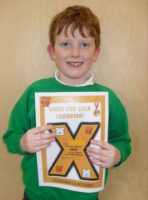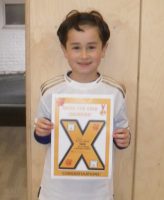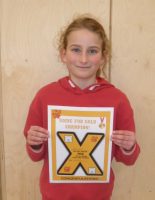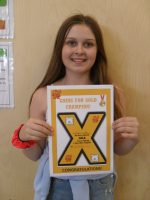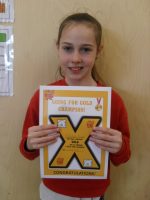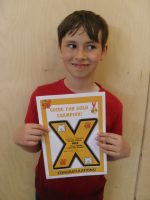English
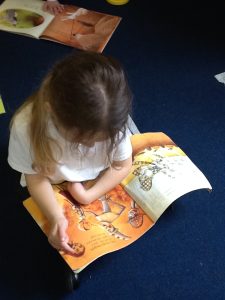
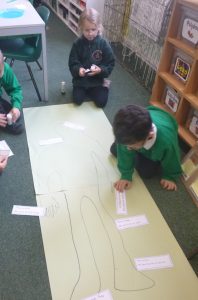
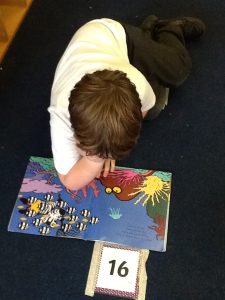
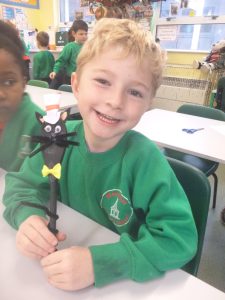
Vision
Our school values underpin our English Curriculum. At Mersham Primary School, we believe that English and communication are key life skills. Through the English curriculum, we will help children develop the skills and knowledge that will enable them to communicate effectively and creatively through spoken and written language and equip them with the skills to become lifelong learners. English is at the heart of all children’s learning.
Aims
All pupils at Mersham have opportunities to:
- Speak and write fluently so that they can communicate their ideas and emotions independently to others and through their reading and listening, others can communicate with them.
- Become fluent and critical readers which enables them to access all areas of the curriculum and the world beyond school, thus widening their horizons.
- Leave Mersham having developed a life-long love of reading and place value in written text, with an understanding of how reading for joy can positively impact their mental health and enable them to become effective citizens of the future.
- Have access to high quality teaching and learning of phonics, with staff setting high expectations of achievement.
- First master phonics in order to access the curriculum and thrive at school.
- ‘Keep up, not catch up’. Early identification of gaps in English enables us to intervene swiftly to enable a child to ‘keep up’.
Teaching, Learning and Delivery
Curriculum Design
The Foundations of our English Curriculum (What is taught and where?)
The aims of the National Curriculum are the foundation of our whole School English curriculum, woven into all areas of learning, enabling children at Mersham to:
- Read easily, fluently and with good understanding
- Develop the habit of reading widely and often, for both pleasure and information
- Acquire a wide vocabulary, an understanding of grammar and knowledge of linguistic conventions for reading, writing and spoken language
- Appreciate our rich and varied literary heritage
- Write clearly, accurately and coherently, adapting their language and style in and for a range of contexts, purposes and audiences
- Use discussion in order to learn; they should be able to elaborate and explain clearly their understanding and ideas
- Be competent in the arts of speaking and listening, making formal presentations, demonstrating to others and participating in debate.
(National Curriculum, 2014)
- Yearly overviews (which are adapted each year to suit the needs of the cohort) outline progression in each key area of the English curriculum:
– Phonics
– English Grammar, Punctuation and Spelling
– Reading
– Writing
By ensuring that all areas are mapped out in detail, we have designed the foundations of a robust English curriculum.
Please note that the exact content of these overviews is subject to ongoing change as a result of teacher assessment.
How the Curriculum is implemented (What it looks like in practice)
Phonics: (EYFS, KS1 and targeted support in KS2)
- We use ‘Little Wandle Letters and Sounds’ phonics daily.
- All staff are confident and display a strong understanding of how we use phonics to teach early reading skills.
- Consistent planning format across the whole school with the use of familiar games and routines embed phonics learning.
- Targeted support using the ‘Little Wandle Letters and Sounds’ keep- up programme in EYFS and Year 1.
- Targeted support using the ‘Little Wandle Letters and Sounds Rapid Catch up’ programme in KS2.
- Group guided reading sessions, with phonically matched books, where they focus on developing their wider reading skills.
- 1:1 targeted reading where appropriate to secure phonics.
- Enriching reading in the learning environment.
- Children are assessed on an individual basis.
- Access to phonically matched books.
- Support for parents: workshops, resources.
Reading:
- Reading for Joy sits at the centre of reading at Mersham and children have regular D.E.A.R (Drop Everything and Read) time with their teachers who model a love and passion for reading. In KS1 children may choose an age-appropriate (not necessarily phonically matched) book of their choice during this time – not only do we support phonically driven reading but also aspiration and reading for joy.
- Children have access to high quality phonic level matched books. Our main schemes are: ‘Floppy’s Phonics’ – Early phonic acquisition; ‘ORT – Alien Adventures’. We supplement this scheme with books from Collins Big Cats, Rigby Stars and Dandelion books.
- In Key Stage Two Each class has a selection of age appropriate high quality texts available to choose from once they move on from the reading scheme. These are carefully monitored by staff to ensure that children have sufficient challenge.
- Guided reading takes place daily in every class, with a balance of teacher/TA led and independent tasks.
- All children read from our guided reading scheme, carefully matched to their age and stage (ORT Alien Adventures).
- We use reading VIPERS to structure our guided reading and formative assessment, alongside the 21 steps.
- Children identified as vulnerable (progress, group) have regular 1:1 reading with a member of staff.
- The lowest 20% of children in each class are tracked by English leaders to ensure appropriate provision is in place.
EGPS and Writing:
- Spelling, Grammar and Punctuation (including phonics) skills are taught daily and discreetly in all classes and then embedded in writing across the curriculum.
- We use Language Through Colour school-wide to support both vocabulary development and spelling.
- Targeted interventions, including the use of Precision Teaching, are used to focus on children who need additional support or who need to ‘keep up’.
- Extended writing skills are taught through a mixture of topic based writing and high quality text based writing drawn from our spine of books.
- Each class has a set of non-negotiables for writing, which apply across the curriculum.
- Each step of the writing process is modelled by teachers.
- Editing and proof-reading: we have designed our own system to develop these skills and promote independence. At the end of every piece of writing children complete an E1 edit (spelling and punctuation) to promote reflection and independence.




Maths
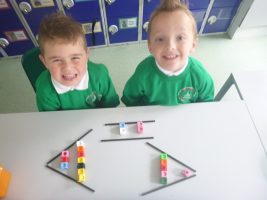
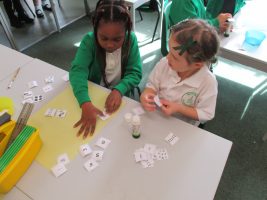
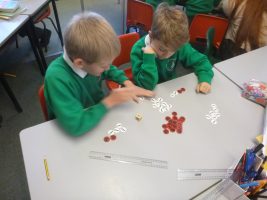
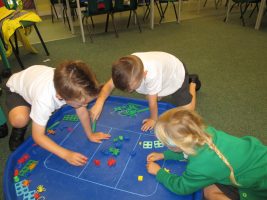
Vision
Our Mathematics curriculum prepares all children at Mersham, including our SEND and disadvantaged pupils, for life after Primary School.
Our yearly curriculum is bespoke to each cohort and continually identifies known gaps in knowledge and skills. Practitioners use quality first teaching methods and accurate in-class, formative assessment to identify and support gaps in children’s learning and planning evolves throughout the year as a result of this. We teach pupils to make connections between areas of Mathematics and, where possible, allow them to make connections to real-life contexts so that their learning has meaning and purpose.
Mathematics is embedded in our curriculum and children experience and apply their knowledge and understanding in other inter-connected subject areas. Our pupils develop independence through their use of manipulatives, jottings and the Maths learning environment. We aim for all children to develop Mathematical fluency in the fundamentals of Mathematics; promoting independent and ambitious learners and thinkers. All our pupils are given opportunities to reason and problem solve. Within lessons, collaboration and discussion supports children in applying vocabulary and confidently verbalising their reasoning.
Teachers set high expectations through a challenging curriculum and mistakes are seen as valuable learning opportunities. Our pupils develop their resilience and perseverance through a challenging curriculum that promotes risk-taking and reflection. Within classes, children move through the curriculum at broadly the same pace. Pupils who grasp concepts rapidly are challenged through sophisticated problems and questioning. Children in EYFS and KS1 gain a secure understanding of counting and number.
How is Mathematics taught?
All pupils at Mersham are mathematicians and have opportunities to:
- Develop a level of fluency that builds confidence in manipulating numbers and making connections.
- Reason about Mathematics, using secure mathematical vocabulary.
- Apply Maths fluently in other areas of the curriculum and see its use and application in everyday life.
- Be resilient and problem solve.
- Express their understanding in a variety of ways (verbally, using concrete manipulatives, informal jottings, formal methods)
The Foundations of our Maths Curriculum (What is taught and where?)
The aims of the National Curriculum are sophisticatedly woven into our whole school Maths Curriculum design, enabling all children at Mersham to:
- Become fluent in the fundamentals of mathematics, including through varied and frequent practice with increasingly complex problems over time, so that pupils develop conceptual understanding and the ability to recall and apply knowledge rapidly and accurately.
- Reason mathematically by following a line of enquiry, conjecturing relationships and generalisations, and developing an argument, justification or proof using mathematical language
- Can solve problems by applying their mathematics to a variety of routine and nonroutine problems with increasing sophistication, including breaking down problems into a series of simpler steps and persevering in seeking solutions.
(National Curriculum, 2014)
- Yearly overviews (which are adapted throughout the year according to the needs of each cohort) outline progression in each new concept/block of learning and display the National Curriculum objectives, the ‘Ready to Progress Criteria’ (NCETM) and the White Rose small steps. These documents serve as a working document to evidence gaps in prior learning and areas for future development. By combining these elements, we have designed the foundations of a robust Maths curriculum.
- The ‘Ready to Progress Criteria’ are used to prioritise the most important Maths knowledge and understanding in each year group, but breadth is provided in other key areas (e.g. fractions in KS1).
- ‘Maths Mastery’ has been strategically introduced in classes through our involvement in the Maths Hub and the key elements of; Fluency, Variation, Representation and Structure, Mathematical Thinking and Coherence have been embedded in our teaching of Maths.
- The White Rose planning structure is utilised to ensure that sufficient weighting is given to priority concepts.
How the Curriculum is Implemented (What it looks like in practice)
- Children in Years R, 1 and 2 participate in regular ‘Mastering Number’ sessions. The programme is designed to secure firm foundations in the development of good number sense for all children so that they leave KS1 with fluency in calculation and confidence and flexibility with number.
- Our Maths curriculum is based on the White Rose scheme. Its resources are used to supplement lesson activity design and ensures a consistent use of models and representations avoids cumulative disfluency and ensures cohesion.
- Children are ‘exposed’ to Maths daily in classes. This can be through direct teaching in lessons, the learning environment or via teachers and support staff facilitating mathematical thinking in play activities in EYFS.
- Children are given regular opportunities to reason mathematically by following a line of enquiry, conjecturing relationships and generalisations, and developing an argument, justification or proof using mathematical language.
- Conceptual fluency is developed through the careful selection of a variety of representations and models. These are consistent and built upon throughout the school to provide cohesion.
- Opportunities are sought to make Maths activities active.
- Teachers apply variation (both procedural and conceptual) to their lesson activities to develop fluency and support children in making connections.
- From EYFS-KS2, teachers understand the importance of manipulatives to support teaching and understanding of concepts.
- Children’s understanding progresses from ‘Concrete’, to ‘Pictorial’, to ‘Abstract’ within concepts.
- Opportunities for regular consolidation, pre-teaching or intervention is provided for those learners who are not sufficiently fluent.
Mathematics Yearly Overviews
Here is an outline of the curriculum for each Year group. Please note, these are adapted on a yearly basis to suit the needs of each cohort. Throughout the year, areas for consolidation are added and at the end of each academic year, the ‘areas to revisit’ are included to ensure that gaps in knowledge are quickly addressed.
Maths Overview EYFS 2022- 2023
Maths Overview YEAR 1 2022-2023
Maths Overview YEAR 3 2022-2023
Maths Overview YEAR 4 2022-2023




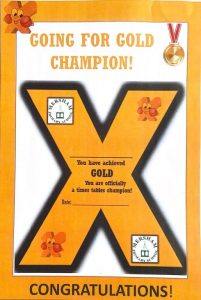
Going for Gold!
At Mersham, we are having a real focus on children’s fluency with multiplication tables. Children can achieve Bronze, Silver and finally Gold awards. Gold is super-challenging with children required to know, by heart, their times tables (up to 12×12) and their corresponding division facts.
Below are those Math-Magicians who have already reached gold…the Going for Gold Hall of Fame!
